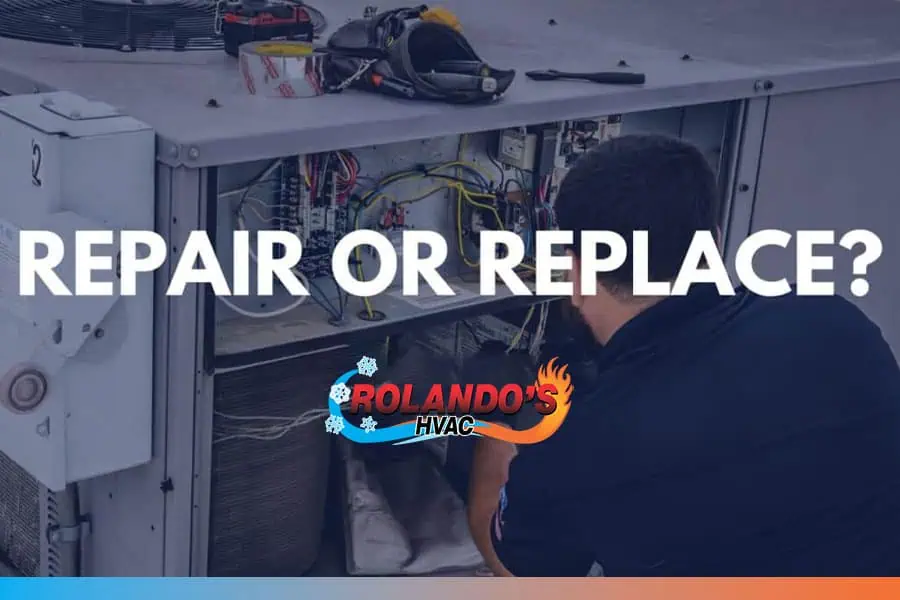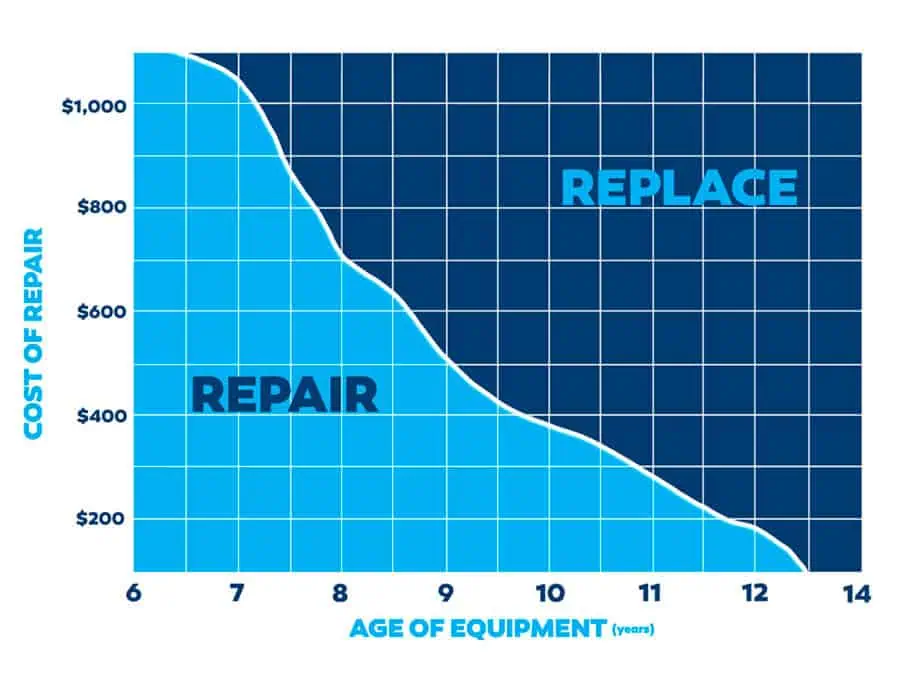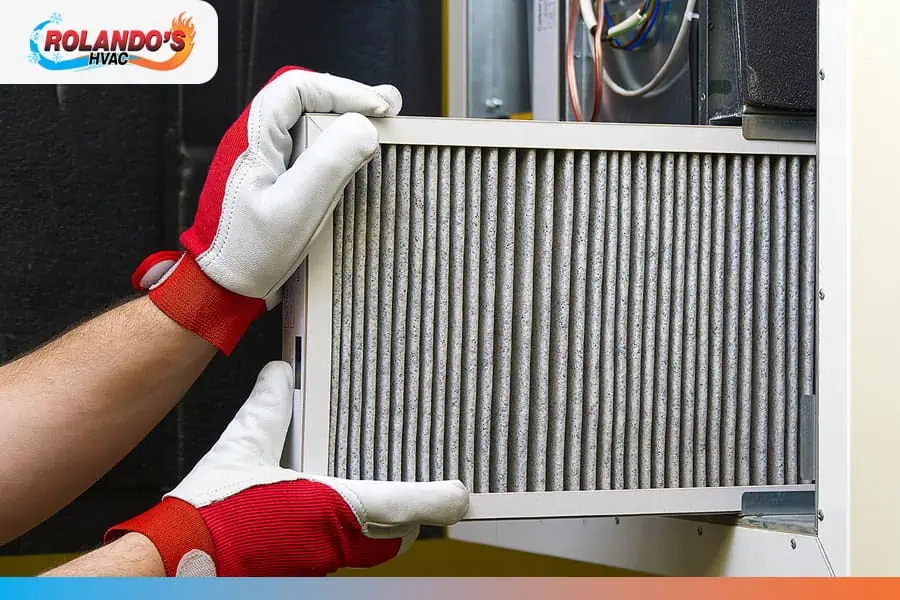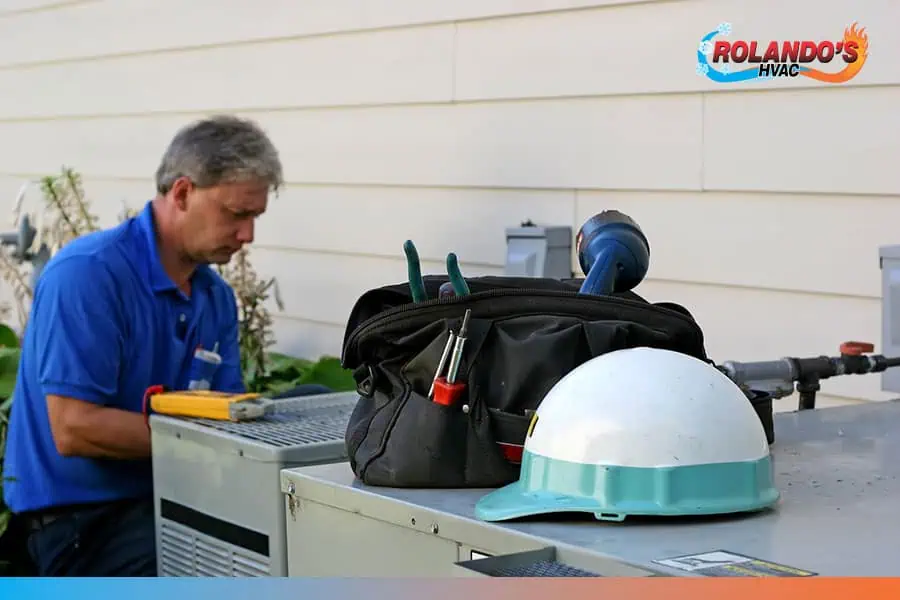
April 6, 2025
Cost Comparison – AC Repair vs. Replacement in Tampa
Tampa’s hot, humid climate puts a heavy strain on air conditioning systems, causing wear and tear on critical components like the compressor, condenser, evaporator, and refrigerant lines. Without proper HVAC maintenance, rising energy costs and air conditioner repairs can quickly become a financial burden. Duct leaks, thermostat issues, and clogged air filters can reduce airflow, creating uneven cooling and higher electricity bills.
As homeowners weigh their options, they often struggle with a key financial decision: Should you repair or replace your AC unit? Factors like Tampa AC repair costs, energy efficiency, SEER ratings, and extended warranty coverage play crucial roles in making the right choice. This guide provides a detailed cost comparison of air conditioning repair vs. replacement to help you make the best investment for your home comfort and energy savings.
Considering your options? Get a Free Estimate with Rolando’s HVAC to get expert advice!
Average AC Repair Costs in Tampa
The cost of air conditioning repairs depends on factors such as the severity of the issue, required part replacements, and labor fees. Below is an overview of common air conditioning repair costs:
Common Air Conditioning Repairs & Costs:
| Repair Type | Average Cost |
| Refrigerant Leak Repair | $200 – $1,500 |
| Capacitor Replacement | $100 – $400 |
| Compressor Repair | $1,000 – $2,500 |
| Fan Motor Replacement | $400 – $1,500 |
| Thermostat Repair/Replacement | $150 – $500 |
| Drain Line Cleaning | $100 – $300 |
Pro Tip: If repair costs exceed 50% of a new system’s price, AC replacement is often the better long-term investment.
Discover more in our guide on Common Causes of AC Failure in Tampa.
AC Replacement Costs in Tampa
Several factors influence air conditioning replacement costs, including:
- Unit Size & SEER Rating – Higher efficiency models cost more upfront but offer significant energy savings.
- Installation Complexity – Ductwork modifications, electrical adjustments, and labor fees can increase costs.
- Brand & Features – Advanced features like smart thermostats and variable-speed compressors add value.
| AC Type | Average Cost (Including Installation) |
| Basic 14 SEER Central AC | $3,500 – $5,500 |
| High-Efficiency 16-20 SEER AC | $5,500 – $9,000 |
| Ductless Mini-Split System | $3,000 – $10,000 |
| Heat Pump System | $4,500 – $8,500 |
Upgrading to a high-SEER unit can lower energy bills by 20-40% annually. Florida offers tax credits and rebates to encourage energy-efficient AC installations.
Learn more in our blog, Energy-Efficient Air Conditioners for Tampa Homes
Key Factors to Consider: Repair vs. Replacement
Deciding between repairing or replacing your air conditioning system requires careful evaluation of efficiency, cost, and long-term performance. While minor repairs may temporarily extend a system’s lifespan, older units can continue accumulating repair costs and energy inefficiencies.
Understanding Efficiency Ratings: SEER vs. HSPF
When evaluating new AC systems and heat pumps, efficiency ratings play a key role in determining energy savings and operating costs:
- SEER (Seasonal Energy Efficiency Ratio) measures how efficiently an air conditioning system cools your home. A higher SEER rating means lower energy consumption and reduced AC replacement costs over time.
- HSPF (Heating Seasonal Performance Factor) applies to heat pumps, measuring heating efficiency—a higher HSPF means less electricity is needed to maintain indoor air quality and comfort.
A high-efficiency heat pump (SEER 16+ and HSPF 8.8+) meets DOE energy standards and can significantly lower utility bills, making it a smart home improvement investment.
AC Repair vs. AC Replacement: Which Is the Better Investment For Tampa Homewoners?
| Factor | When Repair Makes More Sense | When Replacement Is the Better Investment |
| Age of the AC Unit | Less than 10 years old and well-maintained | 10-15+ years old with frequent breakdowns |
| Repair Costs | Under $1,500 for a one-time fix | 50% or more of a new unit’s cost |
| Energy Efficiency | Energy bills remain stable with consistent performance | Rising electricity costs due to declining SEER rating |
| Performance Issues | Minor problems (e.g., capacitor, thermostat, clogged drain) | Struggles to maintain cooling, airflow, or humidity control |
| Warranty Coverage | Still under manufacturer’s warranty, covering parts & labor | No warranty, leading to out-of-pocket repair costs |
| Long-Term Costs | Repairing is a cost-effective short-term solution | Lower repair costs, fewer breakdowns, and energy savings |
| Home Resale Value | Short-term fix if moving soon and avoiding major upgrades | Increases resale value and buyer appeal with a newer system |
| Comfort & Air Quality | Performance is still adequate, and humidity control is stable | Inconsistent cooling, rising humidity, or poor indoor air quality |
Learn more in our blog, How Long Do AC Units Last?
Long-Term Savings & Financing: Is a New AC Worth It?
When considering whether to repair or replace your air conditioning unit, long-term savings and available incentives play a critical role. While repairs may provide a temporary fix, investing in a new air conditioning system can offer significant financial benefits over time, reducing cooling costs, maintenance expenses, and energy consumption.
Key Benefits of Upgrading to a New AC System:
- Lower Energy Bills – High-efficiency air conditioners with SEER 16+ ratings consume 20-40% less electricity, reducing monthly utility costs. Smart thermostats, variable-speed compressors, and advanced airflow optimization further enhance efficiency.
- Fewer Repairs & Maintenance Costs – Older air conditioning units require frequent AC repairs and costly part replacements (e.g., compressor, evaporator, condenser, refrigerant lines). A new system eliminates recurring service calls and HVAC maintenance headaches.
- Better Humidity Control & Air Quality – Tampa’s high humidity increases mold risks, poor indoor air quality, and system inefficiency. An upgraded air handler, evaporator coil, and high-efficiency filter can help maintain balanced moisture control and healthier airflow.
- Higher Home Resale Value – Homes with a new HVAC system attract more buyers and sell at higher prices, making air conditioner replacement a valuable home improvement investment.
- Manufacturer Warranty – Most new air conditioners come with 10+ years of coverage, protecting you from out of pocket expenses for repairs that might have been covered by your warranty. However, skipping regular AC maintenance or attempting DIY repairs can void your HVAC warranty. Be sure to schedule routine maintenance to keep your coverage valid.
Learn more in our guide on Tampa AC Installation Costs: What to Expect

Financing & Rebates: Making Tampa AC Replacement Affordable
Many homeowners hesitate due to high upfront AC replacement costs, but financing options, rebates, and tax incentives can make upgrading more budget-friendly. Investing in a high-SEER HVAC system not only lowers energy bills but also qualifies for federal tax credits, Florida energy rebates, and Better Business Bureau-accredited financing programs. Many air conditioning service companies offer customer service-backed warranties, ensuring long-term reliability.
Financing Options:
- Flexible Payment Plans – Spread out HVAC replacement costs into manageable monthly payments.
- Home Improvement Loans – Low-interest loans tailored for energy-efficient upgrades.
- Better Business Bureau-Accredited Financing – Trusted lenders with HVAC-specific financing solutions.
Tax Credits & Rebates:
- Florida Energy Rebates – Save money by upgrading to an Energy Star-certified AC, which qualifies for state and local rebates.
- Federal Tax Credits – Certain high-efficiency AC models qualify for federal tax incentives, helping offset replacement costs.
- Utility Company Rebates – Many electric companies offer cash-back programs for upgrading to high-SEER air conditioning units.
💡 Expert Tip: Check your zip code for available HVAC tax credits and energy rebates—many state and local incentives can help reduce your AC replacement cost.
Get an Expert AC Assessment: Repair or Replace?
Making the right decision about whether to replace or repair your air conditioning system can be overwhelming. With the high costs associated with HVAC systems, homeowners need reliable guidance to ensure they choose the most cost-effective solution. That's where expert assessment comes in—having a trusted professional evaluate your unit can help you make an informed choice that suits both your home and budget.
Why Choose Rolando’s HVAC for Your AC Repair or Replacement Needs in Tampa?
Rolando’s HVAC is committed to customer satisfaction by providing expert HVAC services tailored to your home’s cooling needs. Whether you need AC repairs, air conditioning replacement, or a professional consultation, our team ensures you make the best decision for your budget and comfort.
- Free Estimates & Second Opinions – Get a no-obligation consultation from a licensed HVAC technician to assess whether AC repair or replacement is the best option for your home. We provide transparent pricing and help you understand HVAC service costs before making a decision.
- Honest Recommendations – We prioritize energy efficiency and long-term savings, advising only the solutions that truly benefit your home and budget. Our team evaluates SEER ratings, repair costs, and extended warranty options to ensure you get the most value from your HVAC system.
- Trusted Local HVAC Experts – With over 200 years of combined experience serving Tampa, FL, we understand the unique challenges of cooling homes in Florida’s hot, humid climate. From urgent air conditioning repairs to seasonal HVAC tune-ups, our team delivers reliable service backed by top-rated customer reviews.
📞 Call (813) 373-6804 or Request a Consultation to find out whether repair or replacement is best for your home!
Frequently Asked Questions (FAQ) – AC Repair vs. Replacement in Tampa
How can a heat pump save me money?
Unlike traditional AC units, a heat pump provides both heating and cooling, making it an energy-efficient alternative for Florida’s mild winters.
- Uses refrigerant flow reversal to provide year-round comfort.
- More efficient than gas furnaces, reducing energy costs.
- Qualifies for tax credits and rebates for high-efficiency upgrades.
How do I lower my AC costs without replacing my unit?
- Upgrade to a smart thermostat for automated energy savings.
- Change air filters every 1-3 months to improve airflow.
- Seal duct leaks to prevent energy waste.
- Schedule annual AC tune-ups to maintain efficiency.
Tip: A clogged air filter can increase your AC’s energy use by 5-15%!
How does financing work for a new AC unit?
Many HVAC companies offer flexible financing options, including:
- Low-interest home improvement loans
- Better Business Bureau-accredited financing
- Monthly payment plans
Tip: Many Energy Star-certified ACs qualify for rebates, tax credits, and utility incentives to help offset the cost.

Rolando’s HVAC










